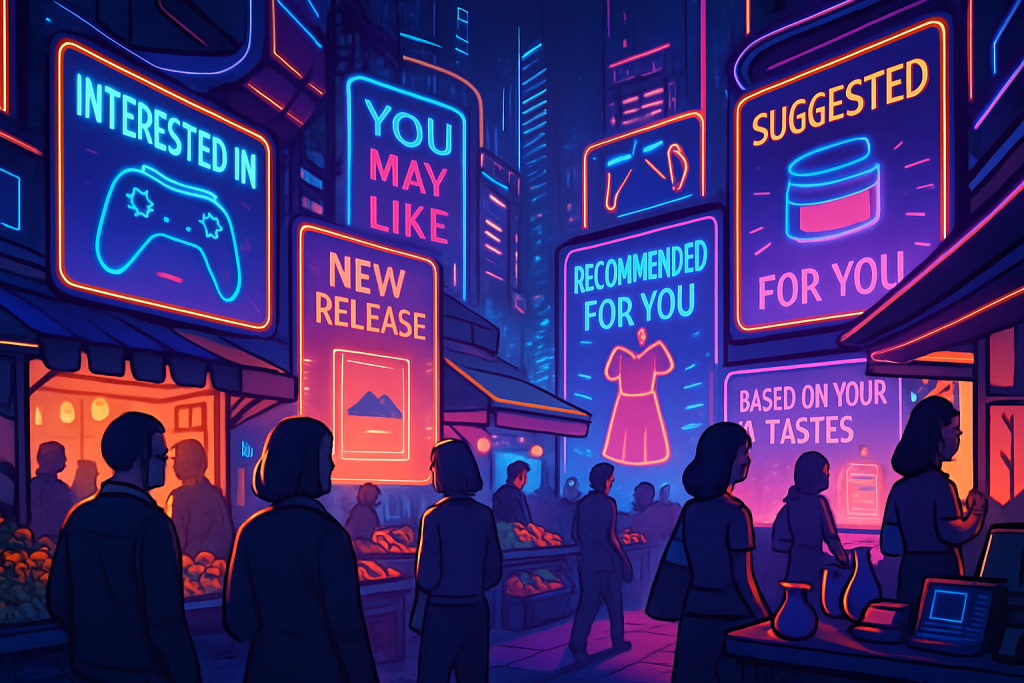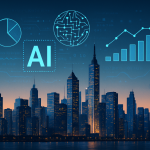Remember those old “Mad Men” episodes where Don Draper would spin gold from thin air, crafting unforgettable ad campaigns over a glass of whiskey? Well, those days are officially numbered. Meta just announced a plan that’s less about creative genius and more about cold, hard algorithms: they’re aiming to fully automate their advertising processes using AI by the end of 2026. That’s right, folks, the robots are coming for your marketing budgets.
The vision, as painted by CEO Mark Zuckerberg, is a one-stop advertising utopia. Businesses simply upload a product image, set a budget, and then…let the AI do its thing. No more agonizing over A/B testing, no more late-night brainstorming sessions trying to come up with the perfect tagline. The AI will handle everything- from generating images, videos, and text, to targeting the right users on Instagram and Facebook, to even suggesting optimal budget allocations.
But to really understand why this is such a seismic shift, we need to rewind a bit. For years, digital advertising has been a complex dance between human intuition and data analysis. Marketers have relied on demographics, interests, and behavioral patterns to target their ads, but it’s always been a somewhat imprecise science. The promise of AI is to take that precision to a whole new level. Think of it as hyper-personalization on steroids.
Imagine this: you’re scrolling through Instagram, and you see an ad for a new coffee shop. But it’s not just any ad. It’s an ad tailored specifically to *you*. The image features a latte art design that matches your favorite animal (based on your previous social media activity), the text mentions a special discount for residents of your neighborhood (thanks to geolocation data), and the video showcases a cozy atmosphere that aligns with your expressed preferences for relaxing environments. That’s the power of AI-driven advertising, and that’s what Meta is betting on.
Meta’s scale is what makes this announcement particularly significant. With over 3.43 billion active users across its platforms, the company has access to an unparalleled treasure trove of data. This data fuels the AI, allowing it to learn and adapt at an unprecedented rate. It’s like giving Skynet a marketing degree and a bottomless expense account.
The implications for marketers are massive. On one hand, it promises to streamline the advertising process, reduce costs, and improve campaign performance. Small businesses, in particular, could benefit from having access to sophisticated AI tools that were previously only available to large corporations. Imagine a local bakery being able to create highly targeted ads that drive foot traffic without having to hire a team of marketing experts.
But there’s also a darker side to this equation. What happens to the human creative element? Will advertising become a soulless echo chamber of algorithmically generated content? Will the “Mad Men” of tomorrow be replaced by lines of code? The potential for homogenization is real, and it raises questions about the future of creativity in advertising.
And then there’s the question of brand safety. Meta’s track record in this area hasn’t exactly been stellar. Remember the Cambridge Analytica scandal? The spread of misinformation during the 2016 election? Advertisers are understandably concerned about entrusting their brand reputation to an AI system that could potentially generate inappropriate or offensive content. Meta will need to demonstrate that it has robust safeguards in place to prevent such incidents.
Meta isn’t the only player in this game. Snap, Pinterest, and Reddit are all investing in AI to enhance their advertising capabilities. Google and OpenAI have also released similar tools, although their adoption has been more cautious. The race is on to build the ultimate AI-powered advertising platform, and the winners will be the companies that can balance innovation with responsibility.
The financial ramifications are also noteworthy. If Meta succeeds in automating its advertising processes, it could significantly increase its revenue and profitability. The company’s stock price could soar, further solidifying its position as a tech giant. But the shift could also disrupt the advertising industry, leading to job losses and consolidation. Ad agencies may need to reinvent themselves to stay relevant in an AI-driven world.
Beyond the financial and business angles, there’s a deeper philosophical question at play: What does it mean to be human in an age of artificial intelligence? As AI takes over more and more tasks that were previously the domain of humans, we need to grapple with the implications for our identity, our purpose, and our future. Are we destined to become mere curators of AI-generated content, or can we find new ways to express our creativity and ingenuity?
The rise of AI in advertising is just one piece of a much larger puzzle. As AI becomes more powerful and pervasive, we need to have a serious conversation about its ethical implications. We need to ensure that AI is used for good, not for ill, and that it benefits all of humanity, not just a select few. The future of advertising, and indeed the future of our society, depends on it.
Discover more from Just Buzz
Subscribe to get the latest posts sent to your email.


